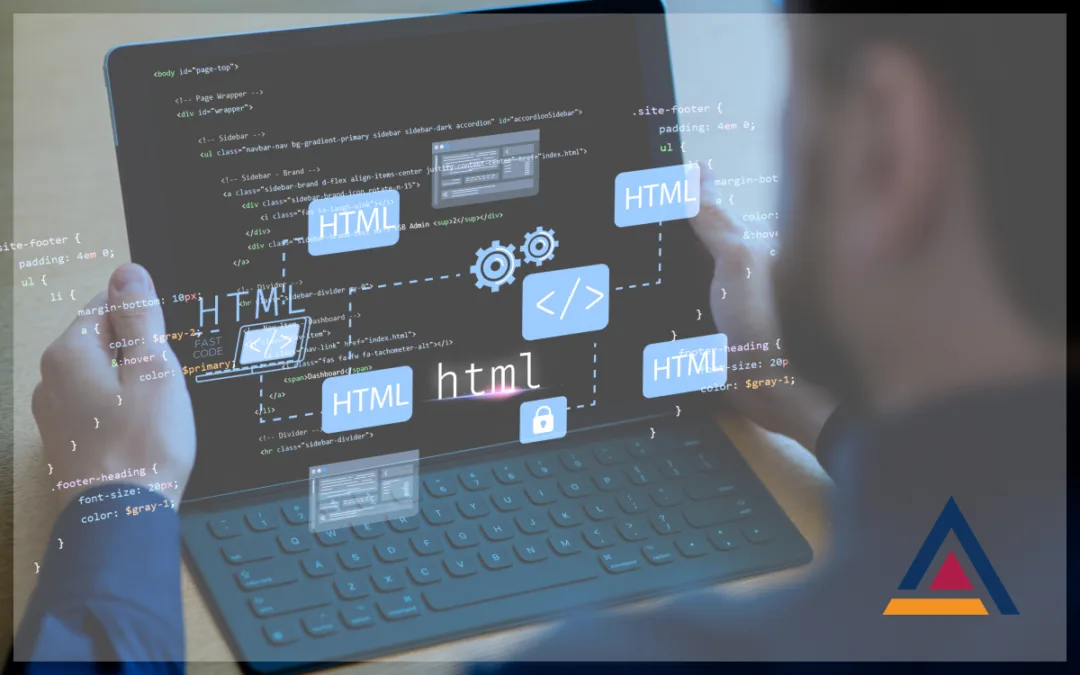In the realm of web development, full-stack proficiency emerges as a prized asset, allowing developers to navigate both the front-end and back-end landscapes seamlessly. This holistic approach grants a comprehensive understanding of the entire web development process. Let’s delve into the intricacies of full-stack web development by deciphering the roles of both front-end and back-end components:
Front-End Development
The Visual Interface
Front-end development revolves around creating the user interface (UI) that visitors interact with directly. It’s the art of combining HTML, CSS, and JavaScript to craft captivating, responsive designs that beckon users.
User-Centric Design
This phase involves understanding user needs, behavior, and preferences to sculpt a visually appealing and intuitive experience. Elements like layouts, buttons, forms, and animations come alive under the expertise of front-end developers.
User Experience (UX)
Crafting a seamless, enjoyable user journey falls within the domain of front-end development. Ensuring swift loading times, easy navigation, and optimal responsiveness is crucial to retain users’ interest.
Back-End Development
The Engine Room
Back-end development powers the application’s functionality behind the scenes. It handles databases, server configurations, and business logic, ensuring smooth operations and data management.
Server-Side Logic
Back-end developers employ languages like Python, Ruby, or Node.js to create intricate algorithms and server-side logic. This enables functionalities such as user authentication, data storage, and interaction with third-party services.
Data Management
Back-end development ensures that data is stored, retrieved, and manipulated efficiently. Databases are meticulously designed and optimized to support the application’s requirements.
The Synergy of Full-Stack
Holistic Understanding
Full-stack developers possess a comprehensive understanding of both front-end and back-end aspects. This dual proficiency empowers them to envision the entire development process and make informed decisions that enhance the user experience.
Rapid Prototyping
With knowledge spanning the entire stack, full-stack developers can swiftly prototype ideas. From visualizing the UI to implementing intricate functionalities, they bring concepts to life faster.
Adaptability
The digital landscape evolves rapidly, introducing new frameworks and tools. Full-stack developers, armed with diverse skills, can adapt to these changes more effectively, ensuring their creations remain up-to-date and competitive.
The Learning Journey
The journey to becoming a proficient full-stack developer is an ongoing adventure that thrives on curiosity and commitment. Here’s a glimpse into what this enriching journey entails:
- Mastery of Front-End Technologies
To excel in front-end development, you’ll dive deep into HTML, the structural foundation of web pages; CSS, the creative tool for design; and JavaScript, the dynamic language that adds interactivity. You’ll craft responsive layouts, leverage CSS frameworks for styling, and master JavaScript libraries for enhanced user experiences. - Back-End Mastery
On the back-end front, you’ll explore server-side languages like Python, Ruby, or JavaScript (Node.js). Databases become your playground as you design schemas, write queries, and ensure efficient data storage and retrieval. Understanding server architecture and managing APIs become second nature. - Server Deployment and Management
Full-stack developers are skilled in deploying applications on servers, ensuring they are accessible to users. You’ll explore server management tools, cloud platforms, and configurations to keep your application running smoothly. - Frameworks and Libraries
A comprehensive toolkit is crucial. From front-end frameworks like React, Angular, or Vue.js to back-end frameworks like Django, Ruby on Rails, or Express.js, you’ll harness these tools to expedite development and create robust applications. - Communication and Collaboration
In a world of constant collaboration, effective communication becomes paramount. Full-stack developers bridge the gap between designers, front-end specialists, and back-end experts, fostering seamless teamwork and efficient project execution. - Keeping Pace with Evolution
The tech landscape evolves incessantly, introducing new languages, frameworks, and paradigms. As a full-stack developer, you’ll embrace continuous learning, staying up-to-date with industry trends to implement the latest innovations effectively.
Final Thoughts
Full-stack web development isn’t just about mastering two sides of a coin; it’s about creating harmonious digital experiences. The dynamic interplay between front-end and back-end allows developers to shape user interactions and data management cohesively.
Aspiring full-stack developers embark on a journey that demands continuous learning and innovation. This path fosters adaptability, creativity, and a deep appreciation for the intricate dance between aesthetics and functionality. By embracing the synergy of full-stack development, you open doors to crafting web applications that captivate, engage, and leave a lasting impact in the digital realm.

